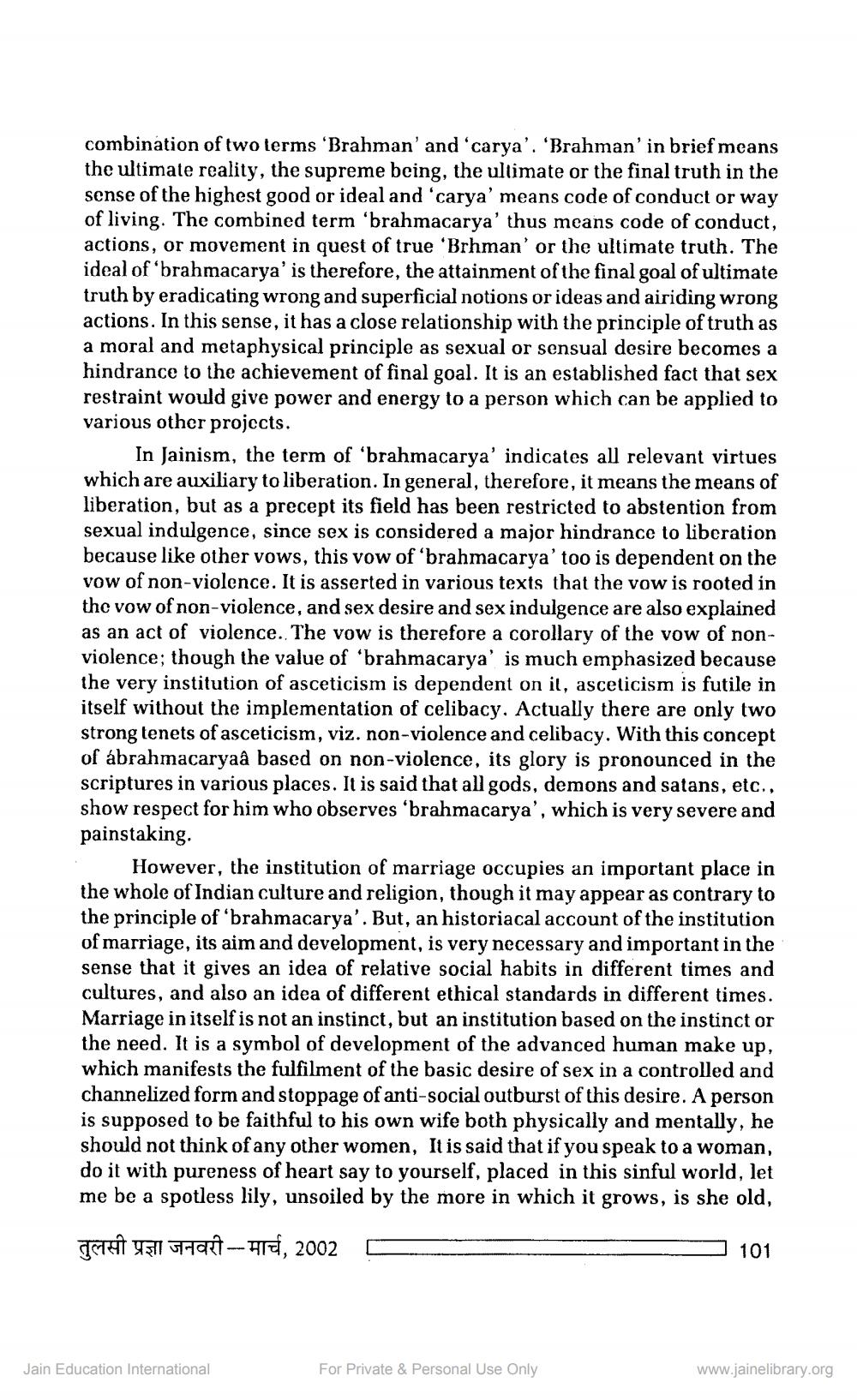________________
combination of two terms 'Brahman' and 'carya'. 'Brahman' in brief means the ultimate reality, the supreme being, the ultimate or the final truth in the sense of the highest good or ideal and 'carya' means code of conduct or way of living. The combined term 'brahmacarya' thus means code of conduct, actions, or movement in quest of true 'Brhman' or the ultimate truth. The ideal of 'brahmacarya' is therefore, the attainment of the final goal of ultimate truth by eradicating wrong and superficial notions or ideas and airiding wrong actions. In this sense, it has a close relationship with the principle of truth as a moral and metaphysical principle as sexual or sensual desire becomes a hindrance to the achievement of final goal. It is an established fact that sex restraint would give power and energy to a person which can be applied to various other projects.
In Jainism, the term of 'brahmacarya' indicates all relevant virtues which are auxiliary to liberation. In general, therefore, it means the means of liberation, but as a precept its field has been restricted to abstention from sexual indulgence, since sex is considered a major hindrance to liberation because like other vows, this vow of 'brahmacarya' too is dependent on the vow of non-violence. It is asserted in various texts that the vow is rooted in the vow of non-violence, and sex desire and sex indulgence are also explained as an act of violence.. The vow is therefore a corollary of the vow of nonviolence; though the value of 'brahmacarya' is much emphasized because the very institution of asceticism is dependent on it, asceticism is futile in itself without the implementation of celibacy. Actually there are only two strong tenets of asceticism, viz. non-violence and celibacy. With this concept of ábrahmacaryaâ based on non-violence, its glory is pronounced in the scriptures in various places. It is said that all gods, demons and satans, etc., show respect for him who observes 'brahmacarya', which is very severe and painstaking.
However, the institution of marriage occupies an important place in the whole of Indian culture and religion, though it may appear as contrary to the principle of 'brahmacarya'. But, an historiacal account of the institution of marriage, its aim and development, is very necessary and important in the sense that it gives an idea of relative social habits in different times and cultures, and also an idea of different ethical standards in different times. Marriage in itself is not an instinct, but an institution based on the instinct or the need. It is a symbol of development of the advanced human make up, which manifests the fulfilment of the basic desire of sex in a controlled and channelized form and stoppage of anti-social outburst of this desire. A person is supposed to be faithful to his own wife both physically and mentally, he should not think of any other women, It is said that if you speak to a woman, do it with pureness of heart say to yourself, placed in this sinful world, let me be a spotless lily, unsoiled by the more in which it grows, is she old,
तुलसी प्रज्ञा जनवरी-मार्च, 2002
Jain Education International
For Private & Personal Use Only
101
www.jainelibrary.org




